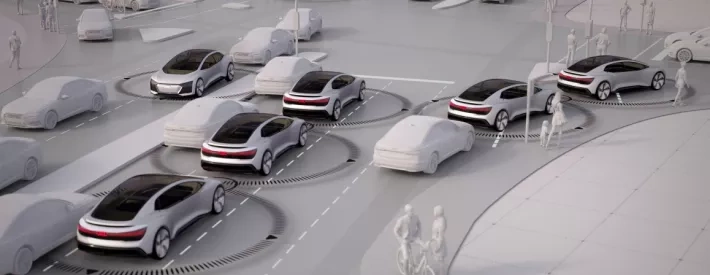How PAVE could shape future training for self-driving vehicles in the UK

Partners for Automated Vehicle Education (PAVE) started in America, bringing together industry, non-profits and academics to engage with the public on self-driving.
Robotaxi fleets are already operating there, and the AV Bill currently progressing through parliament means they could be here in just a couple of years. Hence the launch of PAVE UK, on 21 February, at the Royal Automobile Club in London.
To give a sense of the occasion, high-profile speakers included Minister for the Future of Transport, Anthony Browne MP, Chief Scientific Adviser at the Department for Transport, Prof Sarah Sharples, and road safety campaigner, Meera Naran MBE.
Browne drew on our salubrious surroundings, calling for a 21st century version of the 1,000 Mile Trial, organised by the Royal Automobile Club in 1900 to convince vocal sceptics of the benefits of the motor car.
“Regulation to support the sector is coming to the Commons within weeks, establishing a safety threshold for AVs in law,” he said. “We are making the UK a great place to develop and deploy. The future is closer than most people think.”
MotorPro asked Eliot Smith, Director of Hampshire-based training provider Pro-Moto Europe, for his thoughts on PAVE UK and the future of self-driving technology.
What motivated you to attend the launch of PAVE UK?
We got an invite via our customer Silvera Automotive, who are very into electric vehicles and automated driving. Given that we specialise in hybrid and EV training, we know it is better to be involved at the start when it comes to such qualifications, to be able to influence the standards and technical aspects.
There’s no doubt that smart transport can bring significant societal benefits, but AVs face a real challenge in terms of public perception. We think it’s important to offer an informed opinion on what path AV training should take – to put our business in the driving seat, and to promote the value of those qualifications to technicians and employers.
You got to hear from a host of self-driving luminaries – what did you think?
The burning question I had, which I didn’t get a chance to ask, was given how the UK has struggled to accept or adopt EVs – after 20 years consumers still have questions about how to charge, where to charge, anxiety about range and so forth – how are we going to educate consumers about the advantages of AVs?
We’ve seen in it time and again in automotive, on ABS, airbags, petrol injection, the consumer is always the last to be made aware. They’re left with doubts and nervousness, when all this could and should have been solved quite easily.
When the iPhone launched, everyone got it. The way it was marketed, consumers could see the benefits. It was a sea change and got accepted straightaway. Compare that to EVs. I worry we may end up in the same place with AVs. We need investment to educate people.
What about the practicalities of AV maintenance and repair?
A lot of the tech – brakes, suspension and steering components, in-cabin stuff – will be the same as existing vehicles, so that shouldn’t be a barrier. We will probably need common access, like we have with OBDII.
Once we understand what standards are required in the design, production, service and repair of AVs, the IMI or National Occupational Standards can decide whether we can map across current qualifications, or whether we need a new set. That's the starting point.
Pro-Moto would like to sit on the expert working group, as we did with EV, to be part of the development and evolution of AV qualifications. These will help to educate not only the industry but consumers as well.
There will come a time soon when the AV will alert the service centre to a maintenance need, the necessary parts will be pre-ordered, and it will be a seamless transition all the way through.




